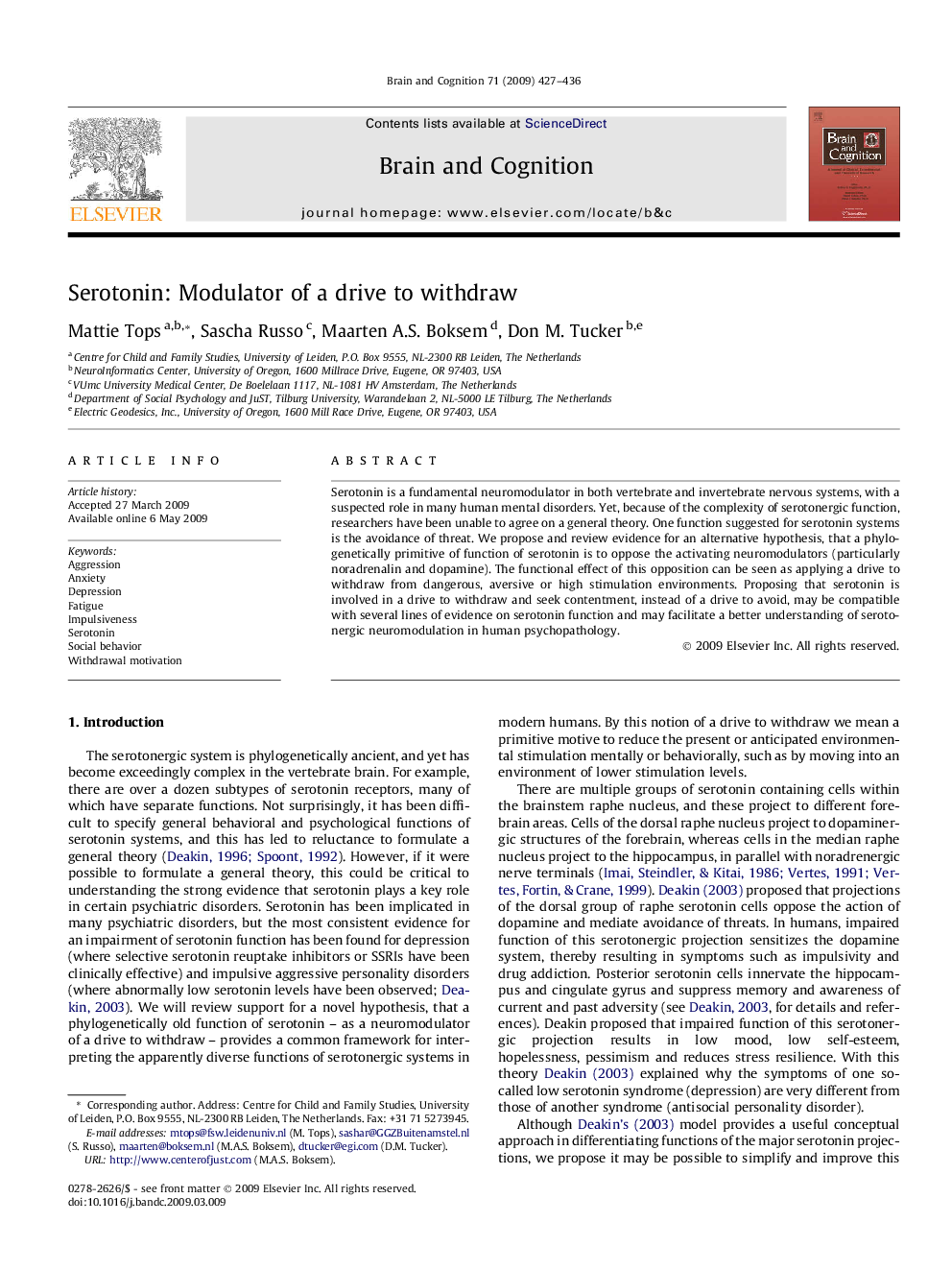| Article ID | Journal | Published Year | Pages | File Type |
|---|---|---|---|---|
| 924408 | Brain and Cognition | 2009 | 10 Pages |
Serotonin is a fundamental neuromodulator in both vertebrate and invertebrate nervous systems, with a suspected role in many human mental disorders. Yet, because of the complexity of serotonergic function, researchers have been unable to agree on a general theory. One function suggested for serotonin systems is the avoidance of threat. We propose and review evidence for an alternative hypothesis, that a phylogenetically primitive of function of serotonin is to oppose the activating neuromodulators (particularly noradrenalin and dopamine). The functional effect of this opposition can be seen as applying a drive to withdraw from dangerous, aversive or high stimulation environments. Proposing that serotonin is involved in a drive to withdraw and seek contentment, instead of a drive to avoid, may be compatible with several lines of evidence on serotonin function and may facilitate a better understanding of serotonergic neuromodulation in human psychopathology.
